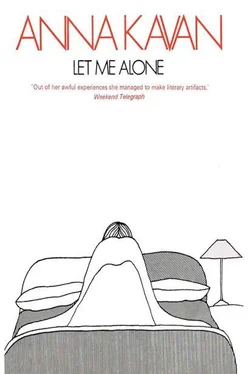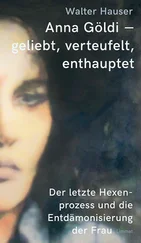The bells of the little two-horse carriage jingled as they drove. Anna looked gaily at everything, Findlay included. But he was rather bird-like and remote. She was conscious of his softly glowing breast.
‘Isn’t it fun?’ she said to him.
‘Yes,’ he said. But he did not come near. He seemed to have flown off blithely to the top of a tree.
The driving, and the dinner at the hotel that evening passed rapidly, like a dream. Anna felt dazzled. She saw only the faces of the natives, the new glow of colour. But sometimes she glanced at Findlay’s face, which was the one that pleased her.
As the evening went on, she was aware of some intention fixed upon her. Someone was willing her. Some secret, silent influence was centred upon her, urging her, intently, in some unknown direction. She looked up and met the blue eyes of Matthew fastened upon her.
‘The East begins here,’ he said to her, when the party broke up, and she found herself suddenly stranded, alone with him in one of the jingling carriages. She looked, and saw the black, domed sky arching over her head. And her heart dilated; she felt the great black dome in her heart. She sat under the stars, worshipping them. Her heart opened and grew vast, until the whole sky with all its stars began to pour into her, a mysterious flood of star-strung darkness. She wanted to receive the night sky into her heart. But Matthew sat beside her, an intruder, weighing upon her. His hard, round head was like a stone lying on her heart. He was insentient, and he weighed her down. She wanted to escape him. But he sat beside her like a stone, immovable, senseless, assailing her with the blind, indestructible, stony weapon of his obstinate will. If only she could get away from him to be alone with the starry night.
‘Where are we going?’ said her low voice, the voice of the small waves along the shore. She closed her eyes in the fragile brightness of the stars, so that she might not look at him.
He did not answer. In her remoteness she felt with faint surprise the hidden power of excitement in him.
‘This is not the way to the boat,’ came her cool voice.
And she knew that he was working against her in some way. A strange certitude came to her, a conviction of his treachery. She felt his malicious scheming about to entangle her.
‘I want to show you something,’ he said.
A defiance, an obstinacy took possession of her, and a kind of lethargy. She could not trouble to circumvent him. She did not really believe in his ability to harm her. She despised him too much. He was too inhuman. And her heart, the heart of her attention was open and softly preoccupied with the starlit night.
She could feel his will straining against her, like a heavy rock grinding and crushing, to compel her. He seemed mindless and oppressive as a rock. She was cold and abstracted and inert, not to be troubled or roused.
So they drove down the narrow streets, and stopped at last in a doubtful quarter of darkness and dingy flares. There was a nameless, unpleasant smell of food and dirt and dark-skinned humanity. Matthew got out, and Anna followed him. He walked holding her arm, urging her on beside him. And she went submissive. She was as indifferent as a leprechaun, as untouchable, he seemed to be holding a goblin arm that chilled him. Yet he must press her on, like a weight against her.
They went through a dark entry. Here Anna saw, with something of horror, the dense, close mass of faces glistening duskily, dusky and appalling under the white-hot flares, shifting and changing as the shadows flickered, chattering and grimacing with apparent ferocity or horrible amusement. All was hideous, a grimacing of hot, glistening, greyish faces. She was repelled by the dense animal conglomeration of humanity pressing about her. Her heart started and contracted within her. She knew that she was afraid.
They stood for a moment of unbearable isolation. Blurred faces looked at them, whitish eyes stared at them, gargoyle mouths leered at them. Here and there a separate visage gleamed, sweatily, like a cheese. Looking round at the shadowy, horrible, mouthing throng a sudden panic-lust seized her, to hack a way through them and tear and trample them and so escape. Her body stiffened rigid like a blade. She looked about, and her face shone cold with loathing. She was afraid.
And an intuition in her warned her against Matthew. He was plotting against her: he wished her ill. He would inflict some evil thing upon her. She stood rigid in the noisome place, waiting. The premonition of evil stung her fiercely, with a poisoned point. Still tensely she must wait.
Till suddenly, a flame went over her, a deadly flame of disgust, burning, corrosive, feeding like some destructive acid upon the very core of her being, destroying her. She must escape, or die. A negro had strolled into the vacant central space. He was altogether naked, was dusty-bluish skinned, and led by one horn a small goat — a dirty brown goat — that seemed frightened and cowed. He was evidently pleased with himself. His curious leering smile, and the curious way he jerked the reluctant goat with his naked arm, in a sort of flick, was very disgusting. Anna felt her heart dissolving in a flame of utter disgust. She must escape or perish, annihilated and consumed by her own horror. She turned and thrust her way out into the street.
So she fled from the place, she hurried along as if escaping from a nightmare. She sped through the stir of the narrow, seething streets, a pale, unthinking thing, flying from the world. She wanted solitude, the absence of alarm, the reassurance of the starlit night. Above all she wanted to get away from the repellant, insistent crowd of natives hemming her about.
She was not afraid any more. All this herd of dusky creatures seething and surging had no power to alarm her. It was not the natives who had made her afraid. But the evil breath of that noxious place, and the evil thing which germinated there. That and the round, dark head of Matthew that haunted her like a traitorous thought.
She hurried blindly along. She had no idea where she was going. She did not think at all. She was detached, alone.
Gradually she began to come back to herself. Gradually a more normal consciousness returned. Slowly the sky swung back to its high, calm, nightly beneficence. She saw the stars still benign and lovely, the pernicious horror of the night began to evaporate. But dismay still lapped her about. What had happened? What was this horror she had experienced? The horror was evil: and it was Matthew. It was Matthew who had inflicted this nightmare upon her. Was Matthew the nightmare? He was strange, he was unreal. What had he done to her? How had he contrived to violate her inmost sanctities? She was filled with superstitious fear of the Matthew who had done this thing. She could not believe that this was the man she knew, it was not possible, not to be thought of. She would not believe in it. With her will she refused to believe. Matthew was a nonentity, a cipher. But he was harmless, his intentions towards her were good and affectionate and commonplace. She would not believe anything else.
So she walked in a daze of dismay. She did not know how to get back to the boat, where to go. It did not matter. She only wanted to be by herself. She wanted to get out of the crowds. Quickly she walked the unfamiliar streets — quickly — as in a delirium. The place had become a nightmare to her: the world was a nightmare. To escape the nightmare she wanted to isolate herself, she wished to be in some lonely spot.
She met Findlay standing at a corner; waiting for her, it seemed. She was astonished.
‘What are you doing here?’ she asked him.
‘Looking for you,’ he replied.
‘But how is it you are just here? At this particular corner?’
Читать дальше












